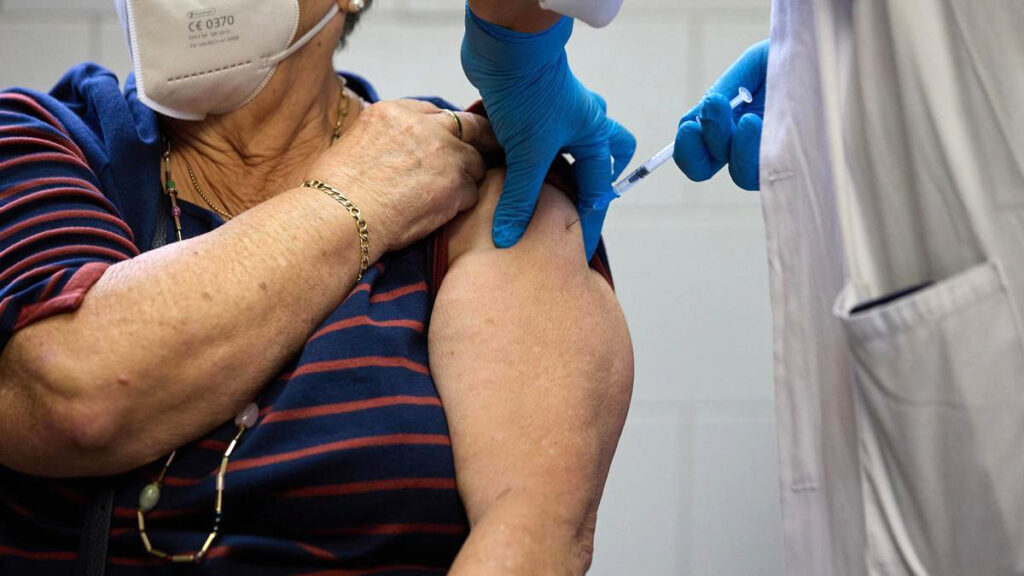
STUDY RESULTS | COVID-19 Vaccine Reduces Reinfections. (Foto/EFE)
STUDY WITH 746 PATIENTS REVEALS
Newsroom El Comercio de Colorado
Haga click aquí para leer la versión en español
A study led by microbiology specialists from the University Clinical Hospital of Valladolid and the WHO Influenza Center in Valladolid has revealed that getting vaccinated against COVID-19 after recovering from the disease significantly reduces the risk of reinfection and increases the time it takes for a person to become reinfected.
The study, conducted on 746 patients with a history of COVID-19 reinfection, assessed the dates of infection and reinfection, as well as the vaccination status of the participants. The results show that an incomplete vaccination pause (one dose) reduces the risk of reinfection by 65%, while with complete (two doses) and booster (three doses) regimens, reductions of 83% and 95% are observed, respectively.
Furthermore, they observed a reduction in risk if the doses are administered six months after the initial infection. The time until reinfection was also longer in vaccinated individuals compared to the unvaccinated. The Health Department of Castilla y León indicates that within the context of accumulated experience, reinfections have frequently been described, even in vaccinated patients.
Vaccines have been updated
It has been demonstrated that, like influenza viruses, this betacoronavirus evolves and vaccines need to be regularly updated. However, as the study points out, the COVID-19 pandemic has also brought to light anti-vaccine sentiments, and there has been, following the end of the pandemic state, a “vaccine fatigue” with declines in both COVID and influenza vaccinations.
The research by the experts from Valladolid focused on these 746 patients with a history of COVID-19 reinfection, assessing the dates of infection and reinfection, as well as their vaccination status (date and number of doses). This was done to evaluate the differences in time until reinfection (tRI) between unvaccinated individuals, vaccinated individuals before and after six months, and comparing one, two, or three doses.
Reduction in reinfection
Among their findings, it is worth noting that the tRI was significantly higher in vaccinated individuals compared to the unvaccinated; vaccination with complete and booster regimens significantly increases the tRI; vaccination increases the time it takes for a person to become reinfected. Additionally, there is a greater reduction in the risk of reinfection if the doses are administered once six months have passed since the infection.
On the other hand, the results show that while an incomplete pause (one dose) reduces the risk of reinfection by 65%, with complete (two doses) and booster (three doses) regimens, reductions of 83% and 95%, respectively, are observed.
During the study period, different variants (original, alpha, delta, and omicron) circulated, and the vaccines had not yet been updated, so it is possible that current vaccines provide a greater reduction in risk. The same sources have emphasized that the contributions gathered in the study highlight the importance of maintaining vaccination strategies, especially in vulnerable patients.
Getting vaccinated post-COVID reduces risk and prolongs immunity
Free vaccination days
También te puede interesar:
The chords of mariachi resonated at MSU-Denver
Denver launches assistance program for asylum seekers
Treasures of Oaxacan imagination exhibited at the Denver Botanic Gardens








otras noticias
Run, Breathe, and Be Amazed at LUNA
Colorado Legislature Approves Law to Boost Food Truck Industry
Polis has 30 days to sign, veto, or let SB25-276 take effect